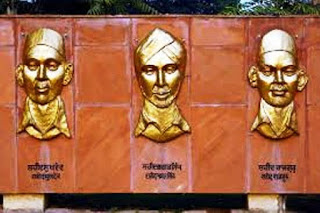
Stephen Hawking: 10 Mind-Blowing Facts You Didn’t Know
Stephen Hawking: 10 Mind-Blowing Facts You Didn’t Know
Stephen Hawking (1942–2018) was a renowned theoretical physicist known for his work on black holes and the nature of the universe. Diagnosed with ALS at 21, he defied expectations and continued groundbreaking research, notably on Hawking radiation. His book A Brief History of Time made complex science accessible to millions. Despite being wheelchair-bound and communicating through a speech device, he remained a leading voice in cosmology. A professor at Cambridge, he contributed to the understanding of singularities and the Big Bang. His resilience and intellect made him a symbol of human determination and scientific curiosity.
- A Lifeless Body, Yet a Brilliant Mind
Stephen Hawking’s body was completely paralyzed; he could neither speak nor write. However, he authored multiple books using a speech-generating device. This device allowed him to communicate by detecting movements in his cheek muscles.
- His Predictions About the End of the World
Hawking warned that artificial intelligence, nuclear war, pandemics, climate change, and overpopulation could lead to humanity’s extinction. He believed humans had about 1,000 years to find another habitable planet before Earth became unlivable.
- A Remarkable Coincidence in Birth and Death Dates
Hawking was born on January 8, 1942—exactly 300 years after the death of Galileo Galilei. He passed away on March 14, 2018, which coincides with Albert Einstein’s birthdate. Interestingly, all three were among the greatest scientists of their time.
- His Views on God and Afterlife
Hawking firmly believed that there was no God, stating that the universe was not created by a divine being, nor was fate prewritten. He also rejected the idea of an afterlife, asserting that our only life is the one we are living now.
- His Take on Alien Life
Hawking was convinced that extraterrestrial life exists somewhere in the vast universe. However, he warned against making contact, suggesting that meeting aliens could be dangerous for humanity.
- His Dream of Writing a Science Book for Everyone
Despite his physical condition, Hawking wanted to write a science book that the general public could easily understand. His dream came true with A Brief History of Time, which explained concepts like the Big Bang and black holes.
- His Experience with Zero Gravity
Hawking longed to travel to space. In 2007, his dream partially came true when he experienced zero gravity aboard an experimental space shuttle, floating weightlessly for four minutes.
- The Most Intriguing Mystery for Him
When asked about the most interesting mystery in the world, Hawking humorously replied, “Women.”
- The Book That Made Him a Global Icon
Although Hawking was well-known in the scientific community, he gained worldwide fame after publishing A Brief History of Time in 1988. The book remained on the New York Times bestseller list for 100 weeks and the British Sunday Times bestseller list for 287 weeks, selling over 10 million copies.
- His Advice to His Children
In a 2010 interview, Hawking shared three life lessons for his children:
- Always look up at the stars, not down at your feet.
- Never stop working, as work gives life meaning and purpose.
- If you are lucky enough to find love, never let it go. Frankly speaking, Stephen Hawking’s life was a testament to human resilience and intellectual brilliance. Despite his physical limitations, he unlocked the mysteries of the universe and left behind a legacy that continues to inspire generations.




